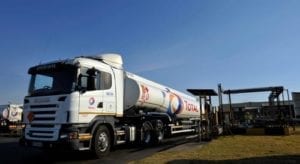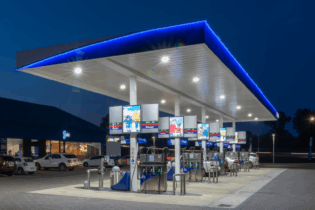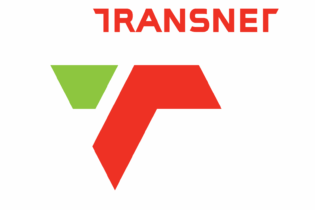The correct fuel and lubricants are essential to ensure trucks operate efficiently and operators save on their overall fuel bill. Simon Foulds speaks to TOTAL South Africa, Shell and Engen to find out about their fuels and whether fuel additives actually improve efficiency.
Fuel technology Thomas Surmon, technical manager – fuels and lubricants, TOTAL SA, says: “Currently, the national diesel grade (500 ppm sulphur) is available at all service stations and complies with SANS 342: 2006. This is the equivalent to the Euro 2 emission enabling fuels. Most petroleum companies market a 50 ppm sulphur-containing diesel meeting the requirements of Euro 4 emission enabling fuels. Currently, the department of mineral and energy is reviewing our national fuel specifications. The new specifications will be in line with Euro 5 enabling fuels.” Riaan Henn, fuels technology manager at Engen, states: “Engen Dynamic Diesel is the next generation of the current Dynamic range, offering dramatic restoration of power for dirty engines and keeping new engines clean. Engen Primax Unleaded has the same detergency benefits, as well as other advances that address enhanced performance and economy. The technological advances ensure that motorists and commercial customers no longer have to choose between performance and economy.” Raymond Abraham, commercial technical manager of Shell South Africa, adds: “At Shell, we have introduced a fuel economy diesel called Diesel Extra that helps customers to save up to 3% on fuel consumption. Engine manufacturers tell us that when fuel burns inside the engine, it leaves behind carbon deposits that alter the spray pattern of the injectors. The diesel injector has tiny holes through which fuel is sprayed into the engine accurately at the exact quantity and time to ensure the engine performs optimally. If these injector nozzles (tiny holes) become blocked, they alter the overall performance of the engine causing an increase in fuel consumption and emissions over time. Shell Diesel Extra is designed with a powerful detergent chemistry that removes these problem deposits to ensure that the engine is free from these power robbing deposits. So by using Shell Diesel Extra, transport operators can save up to 3% on the fuel bill.” Additives When asked about additives in the market place claiming to improve fuel efficiency, the three men are adamant these should be avoided. According to Henn, Engen Dynamic Diesel already contains an additive pack and should aftermarket additives be used it could impact the guarantees offered on the products.” “The multifunctional detergent additive package in Engen Dynamic Diesel contains a unique combination of deposit control chemistries (consisting of a detergent, anti- foam component, corrosion inhibitor and demulsifier), which begin to restore lost power as soon as fuel containing it is introduced to a diesel engine. It does so by counteracting the problems of injector fouling in diesel engines (injector tips are precision instruments – excessive dirt will impact the proper spray pattern and combustion, waste fuel, reduce power and fuel economy). Engen Dynamic Diesel’s effects also apply throughout the fuel distribution system (beyond injector nozzles also the fuel filter, fuel pipes, fuel pump and fuel tank),” Henn continues. Abraham states that engine manufacturers do not recommend the use of aftermarket additives in the fuel. Surmon says: “Be very careful of using aftermarket additives. Many of these additives are not manufacturer-approved and can be extremely harmful to the sensitive equipment fitted to modern engines. The additives are normally high aromatic chemicals that can attack seals on fuel systems.” Next generation fuels Truck manufacturers complain that they are unable to offer the latest fuel-efficient vehicles onto the marketplace because the country cannot provide cleaner fuels. The same goes for the rest of the continent. However, the fuel companies are in the process of addressing this issue.Surman states: “Most petroleum companies are in the process of upgrading the various refineries to meet the challenge of the new clean fuels specification set out by the Department of Energy. Most of the African countries are in the process of changing to the new fuel specifications especially the neighbouring countries that get their fuel supplied from South African sources.”
Henn adds: “Currently, 50 mg/kg diesel is available in South Africa at selected Engen sites. Diesel fuel quality linked to Euro 5/6 emission levels is 10 mg/kg sulphur, but this will depend on the vehicle manufacturer’s configuration. The Petroleum Products Amendment Act (Regulation Gazette No 35410 – 1 June 2012) says that by 1 July 2017, we should have 10 mg/kg diesel, nationally. Truck suppliers introducing units with Euro 5/6 emission standards would have checked that equipment supplied locally is able to operate at the local fuel quality level and should be contacted if unsure. Generally, the rest of Africa specifications (depending on the area) are behind Europe and it will take time for fuel quality, especially sulphur, to reach current European low levels. There are, however, exceptions such as Namibia, which has recently introduced 50 mg/kg diesel as an additional grade.” Abraham says: “South Africa will have Euro 5 compatible fuels by 2017 when all the refineries will need to comply with the government regulations for 10 ppm sulphur fuels. The current specs in Africa are typically between 500 ppm and 5 000 ppm sulphur, which typically cater for up to Euro 2 type engines.” Achieving fuel savings Next to the purchase of the vehicle, a transport operator’s fuel cost is the biggest expense. How can operators save on their fuel bills? According to Surman there are many factors that can influence the fuel economy of an on-road, heavy-duty diesel truck. These include selecting a quality fuel and using the correct grade of fuel that has all the required detergency to maintain the sensitive fuel injection componentry. “Another key factor is vehicle technology. In general, fuel economy can be improved by using electronically controlled engines instead of old mechanical engines; direct drive transmissions instead of overdrive transmissions; tyres designed with tread and materials that provide less rolling resistance and using the correct vehicle for the correct application,” he says. Surman continues saying that the better a truck’s aerodynamics, the better the fuel economy that can be achieved by taking a few simple steps, that is: reduce trailer gaps through cab extenders; use cab roof devices such as deflectors or full roof fairing; use air dam front bumpers, or tractor side skirts; use vans that have smooth sides rather than exterior posts; and remove any components that interfere with the air stream and cause drag. “Another key factor is maintenance practices. Poor maintenance can have a significant negative effect on fuel economy. Fuel economy decreases if air conditioning systems are poorly maintained; debris should be removed from the airside of cooling system cores to minimise blocked airflow; when services intervals are not adhered to, filters block and the engine will not perform as it was designed to, and always ensure the tyres are inflated to the correct pressure.” “For optimal fuel economy, it is best to minimise stopping and maximise steady-state driving. Flat highway routes offer more potential for steady-state driving. Mountainous interstate routes require more fuel because drivers must accelerate uphill and reduce speed downhill,” explains Surman. He adds that driver behaviour, ranging from idling, speeding, excessive use of brakes, unnecessary acceleration, and poor shifting techniques, is one of the biggest factors affecting fuel economy. Using cruise control can reduce fuel economy inefficiencies caused by driver overcompensation when accelerating uphill. According to Raymond, Shell has compiled a number of fuel-saving tips for the driver, which he believes can reduce fuel consumption by up to 30%.- Keep a constant speed of around 85 km/h on highways and use speed control. At 90 km/h, a 2 km/h increase in vehicle speed results in a 2% increase in fuel consumption.
- Avoid driving in a low gear unless it is necessary. Change down for gradients and climb smoothly, making the best use of your vehicle’s momentum.
- Keep idling to a minimum when waiting to unload goods. An hour of idling can result in a 1% increase in fuel consumption.
- Don’t brake unnecessarily. Use the engine brake first where possible.
- Avoid heavy traffic as it may increase fuel consumption by 2 to 10%.
- Plan your journey by choosing alternative routes where the road surfaces are good.
- Use air conditioning and heating only when necessary as these increase fuel consumption.
- Avoid carrying unnecessary weight and ensure the truck’s curtains are fully closed when carrying open loads.
- Regularly check tyre pressures and fill tyres with nitrogen. Every 10 psi of under-inflation increases fuel consumption by 1%.
- Choose Shell diesel fuels with fuel economy formula (saving up to 3% fuel consumption) and low viscosity, fully synthetic Shell driveline lubricant such as Shell Rimula R6 LM (saving up to 5% fuel).







